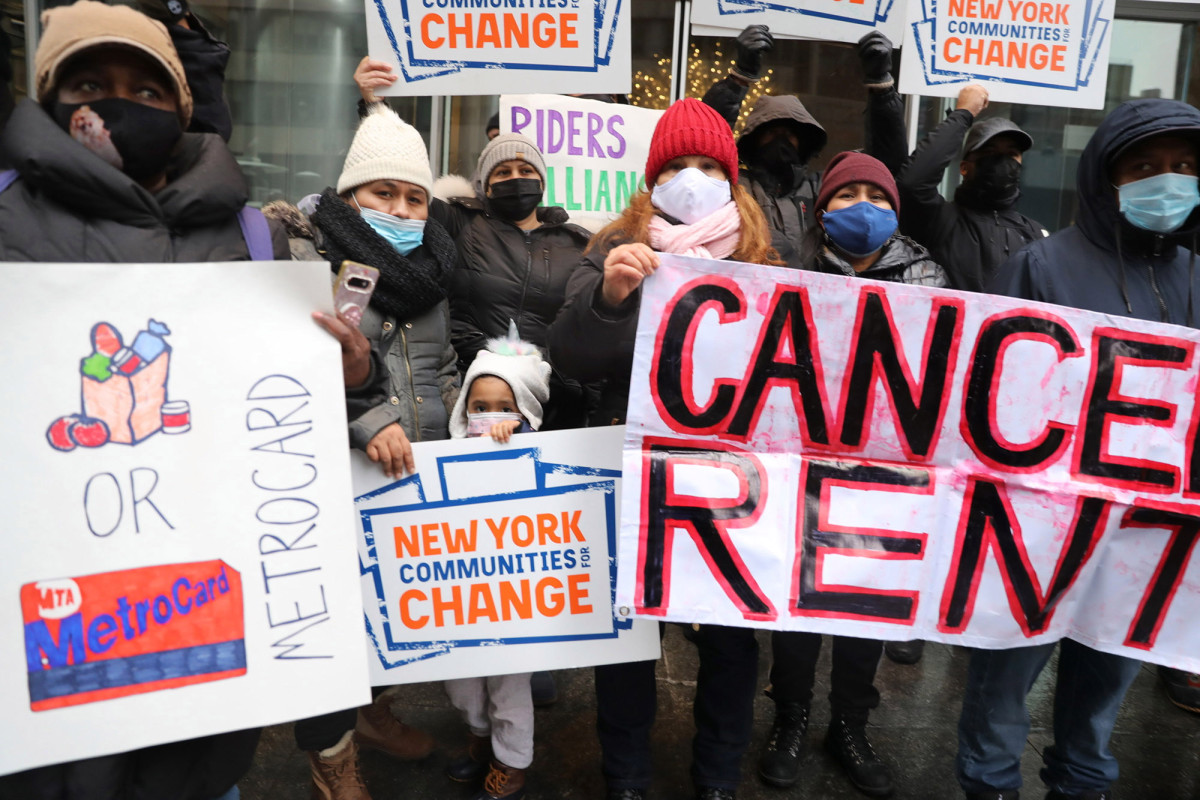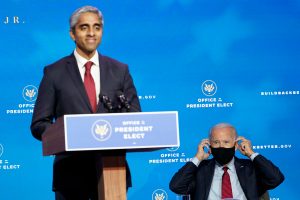Disgruntled straphangers rallied outside Gov. Andrew Cuomo’s Midtown office Sunday to protest proposed MTA fare and toll hikes.
In addition to increasing subway fare prices, the transit agency is considering raising the price of a new single-use MetroCard, getting rid of unlimited subway passes and revoking the Staten Island resident discount on the Verrazzano-Narrows Bridge.
The agency is also considering slashing subway service and eliminating about 9,400 jobs as it faces a severe budget shortfall and plummeting ridership amid the coronavirus pandemic.
Riders and advocates say the increases would basically amount to a tax on essential workers.
“The last nine months have ripped open the deep inequities in our society and exposed what we have known for too long. We exploit the working class to get ahead,” said Betsy Plum, executive director of the Rider’s Alliance.
“Hiking fares with all of these offices closed, with ridership low and with subways shut down overnight is unfairly asking essential workers and low income New Yorkers to pay more for less. We cannot use the subway and bus fare as a regressive backdoor tax to fund the state government,” Plum said.
Twenty-nine-year old Pedro Valdez said it would be “devastating” for his family.
“Today, I want to tell Gov. Andrew Cuomo this is the worst possible time to raise transit fares… If there will be a higher fare rate starting in March, it will take a devastating toll on my family’s immediate monthly expenses, especially since there will be a possibility of no unlimited MetroCards, which saves us a lot of money,” the Bedford Stuyvesant resident and Rider’s Alliance member said.
Since 2009, it’s been the MTA’s policy to enact fare increases every two years.
Fare and toll hikes would go into effect in March if approved by the MTA board early next year. The protest came on the eve of the final public hearing into the move.
The MTA could avoid the worst of its cuts next year if Congress includes $4.5 billion of relief to the transit agency as it negotiates a long awaited stimulus bill. However, even if Washington approves a bailout, the cash-strapped agency would still be grappling with an $8 billion shortfall.
“It’s going to be a hole in the pocket. De Blasio, Cuomo and all the representatives are supposed to do something about it,” said Ariela De Dios, 30, of Richmond Hill, a member of New York Communities for Change.



















